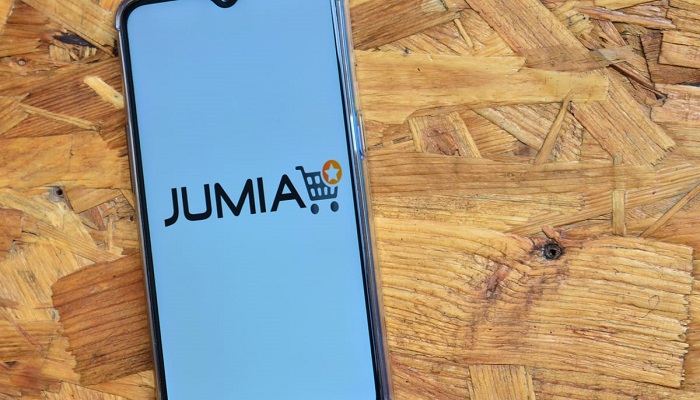This article explains all the procedures to register as a vendor on Jumia and start selling immediately in Nigeria and other countries that support Jumia.
Selling on Jumia.
E-commerce is trending much in Nigeria today.
Most Nigerians (including me) now prefer to buy things directly from online shops rather than doing it the traditional way.
Using the traditional method, you have to go to the market and undergo the stress of walking around to select products, and may even end up standing in a queue to pay for what you bought.
When people choose to buy online from e-commerce like Jumia, they can quickly sort for products online, make their choices, and these products will be delivered to their doorstep.
The most amazing thing about Jumia is that you can pay for delivery. This means that if you are not OK with the product sent (if the product is not the specification you ordered) – you can simply reject it.
This post is explicitly targeted towards sellers, and small business owners; especially those that are into the importation business.
Jumia has over 4 million active users, and the figure is still growing. You can choose to advertise your goods to these 4 million Nigerians by merely selling on Jumia.
There is no doubt that Jumia is among the leading e-commerce stores in Nigeria today.
As it stands now, Jumia is gradually becoming a household brand name; they are becoming very popular within the country. Once you mention “Jumia,” almost everyone knows what you are talking about.
Jumia offers an opportunity to create an online store on its website as a vendor, and this is open to almost everyone who has something to sell with Jumia’s selling category.
Jumia’s marketplace serves as a platform where vendors (sellers) can list their goods for sale with a price tag, then relax and let Jumia handle the rest for them.
At the of each month, you earn revenue from the sales made of your products.
Products you can sell on Jumia
This is the list of products every vendor can sell on the Jumia platform.
Just like in most other eCommerce marketplaces, there are always guidelines to users must follow before they can participate.
The following are the categories list of products and services allowed by Jumia.
- Electronics (television, sound systems, cameras, etc.)
- Fashion Products (jewelry, wearables, watches, etc.)
- Home and Office (bedding, furniture, cookware, appliances, etc.)
- Phones and Tablets (mobile phones of all kinds, tablet phones, phone accessories, etc.)
- Health and Beauty (makeup, haircare, fragrances, etc.)
- Computing (laptops, software, printers, scanners, etc.)
- Grocery (toiletries, laundry, cooking, beverages, etc.)
- Gaming Products (video games, PlayStation, etc.)
- Babies (diapering, toys, apparel, etc.)
- Automobile Products (car & motorcycle accessories, safety equipment, etc.)
- Sports Items (sport & fitness wear, camping, cycling, etc.)
- Other Products Categories (movies, livestock, musicals, gardening, etc.)
Products you Can’t Sell on Jumia
There are some products and services Jumia prohibits, those they won’t allow you to trade on their platform.
- Currency, valid invoices from any country. Fake money and every product that counterfeits financial instruments.
- Every financial instrument or security which disapproved by applicable financial controlling authorities.
- Any counterfeit or stolen goods.
- Illegal substances and products sold to produce, modify, or consume illegal substances. Medicines, drugs, steroids.
- Explosive material and Flammable material.
- Ammunition, fireworks, and every manual that would explain how to build bombs and explosives are disallowed.
- Animals and plants are threatened by extinction.
- Articles are considered to be part of the historic patrimony.
- Every article that is related to hacking is totally prohibited.
- Weapons, substances, or any item related to ammunition are also prohibited.
- Any fake document.
- Items related to pornography, pedophilia, and naked children.
- All kinds of therapies.
- Any item that contravenes intellectual property.
The requirement to sell on Jumia
- The seller must be up to 18 years old. Else minor will have to sell under the supervision of a guardian or parent.
- Businesses must be transparent and should maintain high-quality products. You must do this because Jumia does regular routine quality checks.
- Every vendor should maintain a price parity for all its products.
- For promotional purposes, you will have to grant Jumia access to your products, trademarks, and branding materials.
- The registration process must be completed in order to obtain a Tax Identification Number (TIN).
- Make sure your published products never go out of stock. And also maintain a ready-to-ship policy within 24 hours
How To Sell On Jumia
Becoming a vendor to start selling on Jumia is a six-step, easy process.
If you think the six steps are much, just know that Jumia handles five of the process – yours is only one, surprise?
Life is made much easier for vendors (sellers) they do not have to worry about customer support, keeping sites and domains online, delivery issues, and other stressful stuff that comes with selling goods online.
1. Sign Up
To sell your product on Jumia, or to become a vendor, you must first sign up here.
Once you have completed the registration process, you will have access the Jumia’s vendor area (the back end of your store) where you can easily upload and manage the products you are selling on Jumia.
If managing your vendor’s platform will be difficult for you, then you for the free training course for new vendors, which is not mandatory.
There is a contact line provided for vendors, in case there is an urgent need for communication (07006000000).
2. Making Sales
Once your store is fully up and running, Jumia will perform its part by directing the right audience to your store. It’s as simple as it is said.
You can also choose to promote your store through social media; it all depends on what you want.
Once you’ve set up your store, the next thing to do is wait patiently for your first order.
With the level of traffic in Jumia, your first order may be in minutes after you have uploaded your products. It might also be longer than expected; it all depends on your product niche.
On your dashboard, you are allowed to control your product price and update product information and other vital details about your product.
3. Jumia Warehouse
This is the only part where an effort is needed by vendors. This one is done offline.
Once an order is received in your store, and Jumia verifies that you have the product, you will immediately be notified by Jumia to deliver the product ordered to the nearest Jumia warehouse, where it will then be shipped to your buyer.
You are expected to package and deliver your goods to the Jumia warehouse within a stipulated time. In most cases, 24 hours of receiving the order notification.
4. Delivery
Delivery is the fourth stage of the process. Once your item arrives at Jumia’s warehouse, Jumia is in charge of handling the delivery to the buyer.
They would have to ship the goods to your customer’s shipping address.
5. Customer Care
Jumia will be in charge of everything that has to do with customer care service, not the vendor.
If there is a complaint about a product, the complaint goes to Jumia customer service, which will then query the vendor the product was bought.
Jumia attends to the customer on behalf of the vendors and sorts out issues arising from the ordering process.
How amazing!
Advantages of selling on Jumia
Building an online shop or eCommerce website or/and app for your business may not be so difficult, but promoting it is where it gets tough.
It is difficult for people, especially in this part of the world we live in, to trust products they see online. That Jumia has fixed over the years.
Jumia already has millions of customers who already have trust in them, and as well their window is open for vendors to come in and start selling. In addition, I will explain more benefits of selling on Jumia.
Trusted Brand
As I mentioned above, Jumia already has a huge market of not just people but potential customers. So selling on Jumia makes their customers automatically your customers too.
Instead of buying goods/ products from Mushroom online stores, people are more comfortable putting their card details on Jumia, which has been trusted for many years now.
Registering as a seller on the platform offers you the opportunity to use Jumia’s brand name as a label for your products.
Broader reach
Jumia is open to millions of potential customers. A country such as Nigeria records an estimated over four million users every month who visit their website or app, ready to purchase something.
Another good one again is that Jumia does not have its presence restricted to just one country, it is available in many African countries.
This is a big opportunity to advertise your products to millions of customers.
Stress-free
Jumia makes it easier for every vendor to sell their products without hassle. The process of the Jumia system is not complicated. All that is needed is for you to register, complete the training session, and finally list your products.
Unlimited products
Jumia allows you to list as many products as you can; there is no limit to the number or amount of product uploads you can make. This means that you can upload everything you want to sell without any restrictions.
Jumia seller fees
If you are only building a business on the Jumia platform, Jumia will not charge you. You will only be charged when you make a sale.
Jumia makes their income from sellers as per the revenue-sharing arrangement.
The turnover share will not be the same for all categories of products, it varies from one category to another. Jumia has been doing many business owners lots of goods, at the same time making good income for themself.
RELATED ARTICLES


